Becoming a Feminist: Comparing Angela Davis’ and Chimamanda Ngozi Adichie’s Takes on Trans Women
The activist (at right) and the novelist weren’t onstage at the same time, but their separate talks at London’s Women of the World festival were a kind of debate.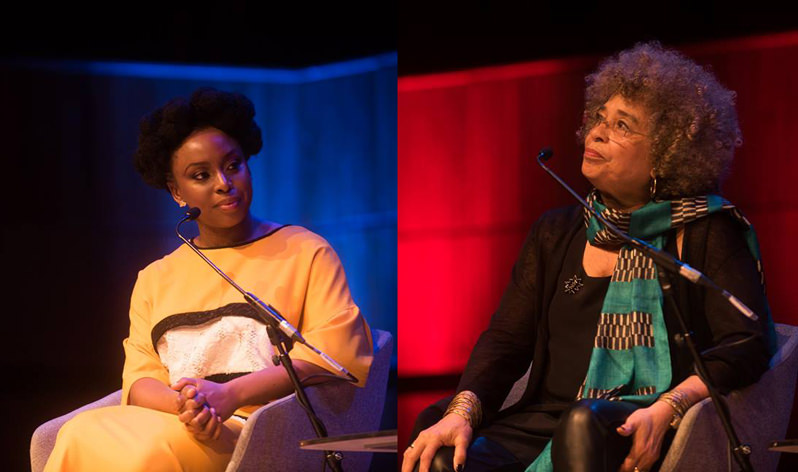 Chimamanda Ngozi Adichie, left, and Angela Davis both appeared, at separate times, at Saturday's WOW—Women of the World festival in London. (Alice the Camera / Facebook)
Chimamanda Ngozi Adichie, left, and Angela Davis both appeared, at separate times, at Saturday's WOW—Women of the World festival in London. (Alice the Camera / Facebook)
LONDON— Riffing on a well-known quote from Simone de Beauvoir’s “The Second Sex,” editor and literary critic Ellah Wakatama Allfrey asked author Chimamanda Ngozi Adichie on Saturday night whether she’d agree that “one is not born, but rather becomes, a feminist.”
Their discussion was part of the WOW — Women of the World festival, an international series founded by Jude Kelly, artistic director of London’s Southbank Centre. It took place an hour after a similar event with feminist intellectual Angela Davis.
While both talks touched on intersectional feminism and furthered the conversation on women’s rights in important ways, Adichie sparked controversy with comments that were a continuation of remarks the award-winning “Americanah” author made on the U.K.’s Channel Four earlier in the week.
It can’t be easy to follow a civil rights hero, let alone Angela Davis, whose humility and grace can move an audience to applause, laughter and tears, all in one breath. She is, as Adichie called her, “the great Angela Davis.”
That said, it’s difficult to watch two famous black feminists speaking in the same room, on the same stage, at the same festival, within an hour of each other, and not draw comparisons. But comparing Davis and Adichie illuminates some of the difficulties of “becoming a feminist” that many of us — including Adichie, it seems — encounter on the journey of “endless becoming,” as the Nigerian writer so eloquently put it in response to Allfrey’s question.
There were many similarities between Davis and Adichie: Both acknowledged that it was impossible to separate race and gender as they spoke about human rights; the two were passionate in their dedication to furthering women’s rights and building a better world for the women and men of tomorrow; each proudly declared their manifestoes and praised those who had contributed to the causes they were fighting for. But there were also important distinctions, and the controversy surrounding Adichie before she took the stage Saturday was an example of their ideological divergence.
The statement Adichie made that caused a public storm was that, essentially, trans women’s experiences are different, and thus separate, from cis women’s (“cis” is defined as person whose gender identity matches the sex assigned at birth). When discussing in the Channel Four interview whether trans women are women, Adichie said, “Trans women are trans women”:
When an audience member at WOW asked her about the comment, Adichie elaborated:
“[My comment] was then misunderstood by people who felt I was somehow saying that trans women were not part of feminism or not part of women’s issues. …
“It’s dishonest and I don’t believe that we should insist on saying that the person who is born female and has experienced life as a woman has the same experiences of somebody who has transitioned as an adult. I don’t think it’s the same thing. I just don’t think it has to be the same thing in order for us to be supportive.”
I could almost hear Davis’ voice when she said, on several occasions on that stage, “When I say women, I also mean trans women—I’m trying to be inclusive here.” Adichie’s formulation is based on the way women “born” females are forced to feel shame about their bodies at a very young age—a shame she doesn’t believe people born with male privilege who later transition into being women have to grapple with. There are inherent flaws with an argument based on this premise, however, as actor Laverne Cox pointed out on Twitter, possibly in response to Adichie’s comments:
[Cox] said she did not feel privileged growing up when her “gender was constantly policed. I was told I acted like a girl and was bullied and shamed for that.”
Instead, Cox argued that the experience of gender is different across the spectrum and that “there’s no universal experience of gender, of womanhood.”
“So though I was assigned male at birth I would contend that I did not enjoy male privilege prior to my transition,” she said, seemingly addressing Adichie’s comments directly. “The irony of my life is prior to transition I was called a girl and after I am often called a man.”
Cox urged people to instead embrace different stories and experiences.
Davis spoke at length Saturday about how she became a public figure by “accident” because of the government persecution she experienced over her political beliefs as a communist during President Nixon’s tenure. The activist’s experiences were shaped at an early stage by her time in prison, and much of her writings have been dedicated to exploring the American prison system and how incarceration is a form of gender policing, as it divides detainees into a heterosexual binary of men and women’s prisons without considering LGBTQ rights. The differences between the experiences of black Americans and black Africans living in the U.S. are a central theme in Adichie’s award-winning novel “Americanah,” and here we have a good illustration of the different results this can yield: Davis’ experiences as a black American woman in the U.S. are inevitably quite different from those Adichie lived growing up as the daughter of a university registrar and a professor in Nsukka, Nigeria, and now as a Nigerian woman living in America.
But perhaps a more important distinction between the two feminists is that Davis identifies as a feminist activist, while Adichie is a novelist who identifies as a feminist. That’s not to say that Adichie has not used her incredible storytelling abilities to contribute to the conversation on feminism—even during the WOW talk, the author used anecdotes from her life and the lives of her friends to answer questions and illustrate her ideas on feminism. Davis, on the other hand, aside from mentioning her time in prison as formative, did not focus as much on the individual as she did on the importance of collective organizing and the tools, including the language and ideas, needed to move feminism forward. Davis’ talk was filled with discussions about the sociopolitical and economic circumstances that uphold a system of oppression in which both women and men suffer as a result of hegemonic, capitalist, white patriarchy. The civil rights activist thus offers a way to view feminism itself as a tool that inevitably permeates the personal spheres once it is able to affect change on a broader social scale. Adichie, on the other hand, focused on her recent book, “Dear Ijeawele, Or a Feminist Manifesto in Fifteen Suggestions,” in which she offers advice to a friend (and to readers) on how to raise a feminist daughter:
Yet despite her stating early on that conversations about “domestic work,” which she considers to include child care, do not interest her, it seemed to me that her ideas about feminism center on the domestic sphere and the idea of women as mothers, women as people with vaginas who have to face battles with their spouses and others regarding their role in the home and in the world. And centering the conversation on motherhood inevitably excludes a whole lot of women—including trans women, but also women who choose not to have children, as well as those who cannot conceive. And all these women (and others I’ve failed to list) are women, if we understand gender as a social construct, a feminist idea that Adichie herself touched upon several times.
Adichie’s thoughts on women’s rights, while engaging, seemed to go only so far—to stop at an imperceptible line that kept her from embracing the inclusivity Davis emphasized in her speech. As I thought of Davis while listening to Adichie on Saturday night, I felt a similar way as when I read “Americanah” soon after reading Junot Diaz’s “The Brief Wondrous Life of Oscar Wao.” While Adichie’s prose is undeniably powerful, beautiful even, the language and storyline seemed polished in a way that kept her from taking the type of risks I found so painfully rewarding in Diaz’s work. In each of my encounters with the author and her work, I wanted Adichie to scratch further beneath the surface of both language and politics.
On the topics of Hillary Clinton and Donald Trump, similar contrasts between the two feminist thinkers arose. Davis said she didn’t think Clinton, who often used the metaphor of the glass ceiling—which Davis finds elitist—would have been radically different from Trump when it came to policy. Adichie, on the other hand, spoke of sexism targeting Clinton throughout the campaign, without delving into the Democratic candidate’s failure to address intersectionality adequately (evidenced by her dealings with the Black Lives Matter movement), or how policies she supported, such as welfare reform, disproportionately affected poor women. Not only was it possible to acknowledge that Clinton faced sexism throughout her career and presidential campaigns while also criticizing her anti-feminist approaches to important issues, it was imperative to do so during the election season, and it continues to be as the Democratic Party perhaps charts a new path forward from its crushing November losses.
Which is why these WOW talks and conversations like them are so crucial—not just in the U.S. and the U.K., but all over the globe, as we imagine, as Davis continually touched upon during her talk, a different world for future generations. In some ways, WOW’s scheduling of the two feminist writers on the same stage allowed for a debate to take place between the two, despite the fact that they were not sitting there at the same time. One of Adichie’s most admirable traits, I noticed Saturday, was that whenever she ran into a point of contention, she acknowledged her interlocutor’s concerns and the right of both to have and voice their opinions. I hope that throughout the long career Adichie has ahead of her as a public feminist—a role she said she is still grappling with because of the “consequences” it has had for her personally—she will never stop listening to others’ takes, such as those of Davis and Cox, and continues always to become a feminist.
Your support matters…Independent journalism is under threat and overshadowed by heavily funded mainstream media.
You can help level the playing field. Become a member.
Your tax-deductible contribution keeps us digging beneath the headlines to give you thought-provoking, investigative reporting and analysis that unearths what's really happening- without compromise.
Give today to support our courageous, independent journalists.
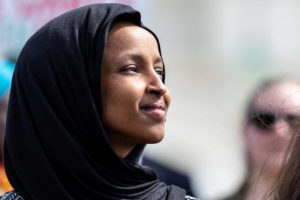
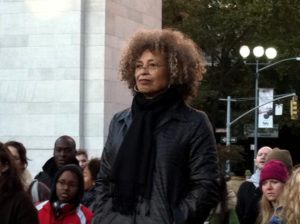

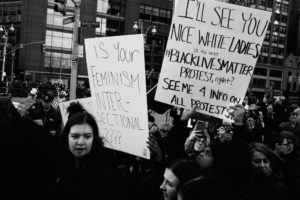
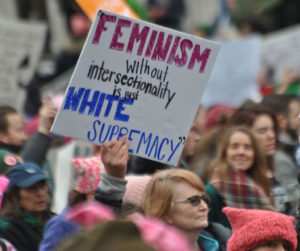
You need to be a supporter to comment.
There are currently no responses to this article.
Be the first to respond.